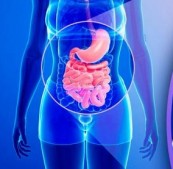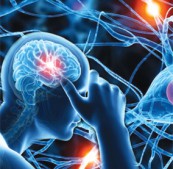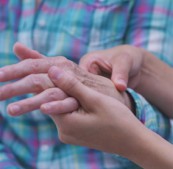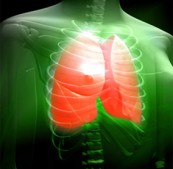Female Infertility

Infertility primarily refers to the biological inability of a person to contribute to conception. In women, it may also refer to the state when she is not able to carry a pregnancy to its full term.
CONCEPTION IS DEPENDANT ON THE FOLLOWING FACTORS
The (Rtu kaala) Release of a normal oocyte
- Bija (ovum and sperms)-Production of adequate spermatozoa. The sukram and arthavam should be devoid of dusti
- Ksetra(female reproductive system)-Normal transport of the gamates to the ampullary portion of the fallopian tube(where fertilization occurs)Subsequent transport of the cleaving embryo into the endometrial cavity for implantation and development.The reproductive organ should be the devoid of any diseases.
- Ambu(nourishment)-The role of umbilical cord and amniotic fluid in the fetel development plays an important role.
- Vayu functions properly.
- The partners are healthy physically and psychologically.
- Above all factors the couple should indulge in proper intercourse.
Female Infertility is "A woman of reproductive age who has not conceived after 1 year of unprotected vaginal sexual intercourse, in the absence of any known cause of infertility, should be offered further clinical assessment and investigation along with her partner."
Female infertility is caused due to structural problems like,
- Blocked Fallopian tubes
- defect in cervical canal
- uterine fibroid or polyps
Hormonal imbalance leading ovulation problems too can cause infertility. From Ayurvedic perspectives, Shukra Dhatu can get affected by various physical, mental causes and even by serious diseases. Poor quality Shukra Dhatu can cause infertility in males and females.
Infertility can further be broken down into,
- Primary infertility
Primary infertility -refers to the inability to give birth either because of not being able to become pregnant, or carry a child to live birth, which may include miscarriage or a stillborn child.
- Secondary infertility
Secondary infertility refers to the inability to conceive or give birth when there was a previous pregnancy or live birth.
Signs & Symptoms(Lakshana):
Common Signs of Infertility in Women
Irregular periods
The average woman's cycle is 28 days long. But anything within a few days of that can be considered normal, as long as those cycles are consistent. For example, a woman who has a 33-day cycle one month, a 31-day cycle the next, and a 35-day cycle after that, is probably having "normal" periods. But a woman whose cycles vary so greatly that she can't even begin to estimate when her period might arrive is experiencing irregular periods. This can be related to hormone issues, or to polycystic ovarian syndrome (PCOS). Both of these can contribute to infertility.
Painful or heavy periods
Most women experience cramps with their periods. But painful periods that interfere with your daily life may be a symptom of endometriosis.
No periods
It's not uncommon for women to have an off month here and there. Factors like stress or heavy workouts can cause your period to temporarily disappear. But if you haven't had a period in months, it's time to get your fertility checked.
Symptoms of hormone fluctuations
Signs of hormone fluctuations in women could indicate potential issues with fertility.
- skin issues
- reduced sex drive
- facial hair growth
- thinning hair
- weight gain
Pain during sex
Some women have experienced painful sex their entire lives, so they've convinced themselves it's normal. But it's not. It could be related to hormone issues, to endometriosis, or to other underlying conditions that could also be contributing to infertility.
Causes(Nidan):
Acquired
- Age
- Tobacco smoking
- Sexually transmitted infections
- Body weight and eating disorders
- Chemotherapy
- Immune infertility
Other acquired factors like,
- Adhesions secondary to surgery in the peritoneal cavity
- Diabetes mellitus.
- Coeliac disease.<>
- Significant liver or kidney disease
- Thrombophilia
- Cannabis smoking, such as of marijuana causes disturbances in the endocannabinoid system,
- Radiation, such as in radiation therapy.
Genetic factors like Turner syndrome
By location
- Hypothalamic-pituitary factors
- Ovarian factors
This includes, Chemotherapy (as detailed previously) with certain agents have a high risk of toxicity on the ovaries.
- Many genetic defects (as also detailed previously) also disturb ovarian function.
- Polycystic ovary syndrome (also see infertility in polycystic ovary syndrome)
- Anovulation. Female infertility caused by anovulation is called "anovulatory infertility", as opposed to "ovulatory infertility" in which ovulation is present.
- Diminished ovarian reserve, also see Poor Ovarian Reserve
- Premature menopause
- Menopause
- Luteal dysfunction
- Gonadal dysgenesis (Turner syndrome)
- Ovarian cancer
- Tubal (ectopic)/peritoneal factors
- Endometriosis (also see endometriosis and infertility)
- Pelvic adhesions
- Pelvic inflammatory disease (PID, usually due to chlamydia)
- Tubal occlusion
- Tubal dysfunction
- Previous ectopic pregnancy.
Uterine factors
- Uterine malformations
- Uterine fibroids
- Asherman's Syndrome
- Implantation failure without any known primary cause. It results in negative pregnancy test despite having performed e.g. embryo transfer.
Cervical factors
- Cervical stenosis
- Antisperm antibodies
- Non-receptive cervical mucus
Vaginal factors
- Vaginismus
- Vaginal obstruction
Ayurvedic Treatments :
Treatment pathway include methods like,
- Agni deepana and Ama pachana
Ama formation (toxins created when undigested food forms in the stomach) by the imbalance in Agni (the power of digestion) lead to many diseases. Therefore, the treatment of Ama must always include the treatment of Agni, including the use of digestive and carminative Ayurvedic formulations, eating meals at proper time following an appropriate schedule. Ayurveda Panchakarma treatments help to eliminate Ama thus corrects Agni. Healthy Agni will also contribute to healthy Ojas.
- Vatanulomana
The main dosha involved in infertility is Vata. So Vatanulomana (correcting the functions of Vata) is very important in the treatment of infertility. Ayurvedic formulations, following routine exercises and strict diet schedule will help in Vatanulomana.
- Sodhana
Suitable sneha-swedas are done prior to sodhana. Then treatment modalities like Vamana (emesis), Virechana (puragation), Vasti (medicated enema) and Utharavasti special enema administered through urethral or vaginal routes) are done as per the condition of the patient. The patient has to follow peyadi krama (strict dietary regimen to be followed after Sodhana). This detoxification therapy helps in the expulsion of the toxins from the body. These therapies help to correct ovarian, tubular and uterine problems causing infertility.
- Ayurveda treatments help in releasing tension and removing impurities from the body. They nourish the body, revitalize the mind and strengthen the immune system. They are beneficial in reducing stress, nourishing all dhatus of the body and pacifying Vata.
Additional Treatment
Dietary management
Diet plays a vital role in the prevention and cure of diseases and in maintenance of good health. "Annam Brahmam" - Food has been compared to God, in the ancient Indian scriptures since it is the main factor for sustaining and nourishing life. Dietary management involves strict compliance and adherence to foods that increase Ojus (an intersection factor of physical, mental and spiritual health of the body, responsible for overall health, energy and liveliness) and to avoid the substances which diminish the Ojas. This is important to regulate ovulation and enhances fertilization. Eating whole foods provides all nutrients for the health of the body in addition to the fibres that influences hormonal levels of the body. Foods such as processed carbohydrates, excess starch, antibiotic and hormone laden meat and milk and canned produce destroy fertility.
Ojas building food include as milk, ghee, nuts, sesame seeds, dates, pumpkin seeds, honey, saffron and avocados, fresh organic fruits and vegetables, protein from plant sources like beans, and peas, sweet, whole grains, spices such as ajwain powder, turmeric (improves the interaction between hormones and targeted tissues), cumin (purifies the uterus in women and the genitourinary tract in men) and black cumin boost fertility. Diet should be free from Trans-fats as they block arteries, threaten fertility and harm the heart and blood vessels and therefore, must be avoided. Foods containing preservatives and other chemicals, like artificial sweeteners, Monosodium Glutamate (MSG), diet high in fat and other artificial flavouring and colouring, excess alcohol and caffeine, tobacco, soda, smoking, red meat, refined carbohydrates, such as pasta, white bread, rice etc can exacerbate the problem of infertility.
Prevention
If you're a woman thinking about getting pregnant soon or in the future, you may improve your chances of having normal fertility
If you:
- Maintain a normal weight. Overweight and underweight women are at increased risk of ovulation disorders. If you need to lose weight, exercise moderately. Strenuous, intense exercise of more than five hours a week has been associated with decreased ovulation.
- Quit smoking. Tobacco has multiple negative effects on fertility, not to mention your general health and the health of a fetus. If you smoke and are considering pregnancy, quit now.
- Avoid alcohol. Heavy alcohol use may lead to decreased fertility. And any alcohol use can affect the health of a developing fetus. If you're planning to become pregnant, avoid alcohol, and don't drink alcohol while you're pregnant.
- Reduce stress. Some studies have shown that couples experiencing psychological stress had poorer results with infertility treatment. If you can, find a way to reduce stress in your life before trying to become pregnant.
- Limit caffeine. Research suggests that limiting caffeine intake to less than 200 milligrams a day shouldn't affect your ability to get pregnant. That's about one to two cups of 6 to 8 ounces of coffee per day.





